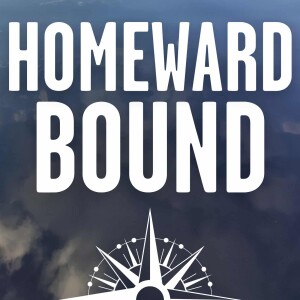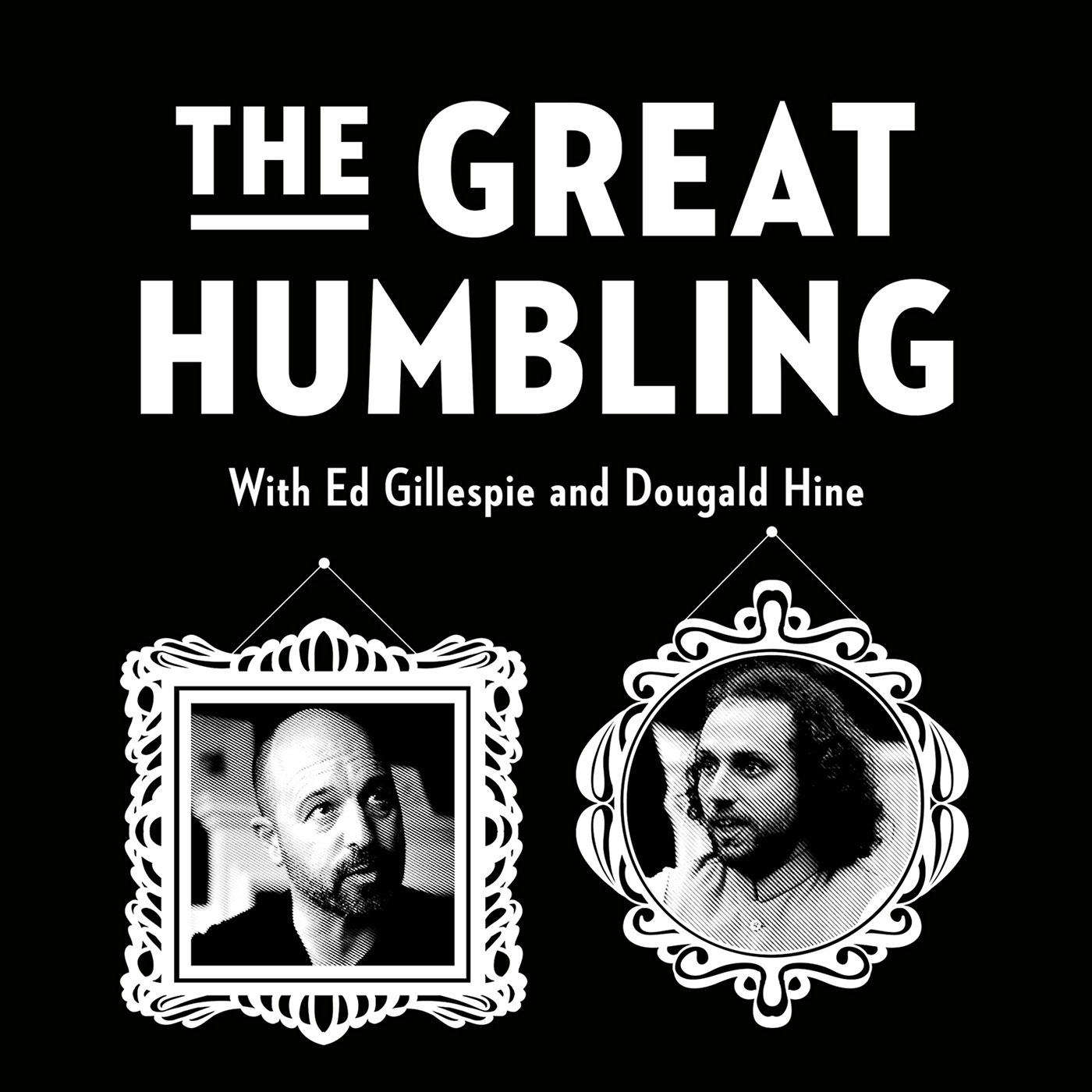
Homeward Bound (including The Great Humbling)
Society & Culture

This episode starts with a little reflection on our new more-or-less monthly schedule, and in the course of this episode, we talk about a few other podcasts:
- Ingrid Rieser's Forest of Thought
- Per Johansson & Eric Schüldt's Swedish-language Myter och mysterier
- Ed's other podcast, Jon Richardson & the Futurenauts
- The Sacred, a podcast from the think tank Theos presented by Elizabeth Oldfield
We talk about COP26 and Ed mentions his recent TEDx Kings Cross talk, 'How We're Going to Solve Climate Change' where he refuses the frame of solutionism.
To lead us into the theme of this episode, Dougald quotes Mary Harrington on the old rhetorical idea of 'the common-place'.
Ed leads us through the etymology of 'commons' and, after a brief diversion into Simon Pegg's Three Flavours Cornetto trilogy, we reach Garrett Hardin's 'Tragedy of the Commons' paper and the work of Nobel laureate Elinor Ostrom who demonstrated that commons don't tend to fail in the way Hardin imagined.
Dougald brings in another strand of thinking about the commons, starting from Anthony McCann's old website Beyond the Commons and his paper Enclosure Without and Within the Information Commons.
This connects to Ivan Illich's Silence is a Commons, where he distinguishes 'the environment as a commons' from 'the environment as a resource'. The smörgåsbord of the Swedish hotel breakfast buffet gives us a 'common-place' with which to talk about not seeing the world as made of resources.
Dean Bavington's history of the Newfoundland cod fishery collapse, Managed Annihilation, also gets a mention as a book that complicates the 'tragedy of the commons' assumption.
Ed brings in the late David Graeber's final book, written in partnership with David Wengrow, The Dawn of Everything.
We acknowledge another huge loss, the unexpected death of Silke Helfrich, co-founder of the Commons Institute.
Dougald talks about how Chris Smaje's posts over the past year at Small Farm Future have made him reflect on the unhelpful idealisation of the commons (and denigration of all forms of private ownership) in some of the conversations that go on about these things today.
We return to the theme of the 'common-place' and the naming of this site as 'the commonplace book of a school called HOME'. Among other things, this has to do with what Peter Limberg of the Stoa was getting at when he wrote 'stop looking at the readership metrics'. The aim here is not to compete for platform, to reach as large an audience as possible, but to gather together things that are helping us make sense of the times we're living in.
This is a public episode. If you would like to discuss this with other subscribers or get access to bonus episodes, visit www.homewardbound.org
More Episodes
 2024-11-05
2024-11-05
 2024-08-21
2024-08-21
 2024-05-21
2024-05-21
 2023-11-17
2023-11-17
 2023-11-01
2023-11-01
 2022-07-19
2022-07-19
 2022-05-24
2022-05-24
 2022-01-31
2022-01-31
Create your
podcast in
minutes
- Full-featured podcast site
- Unlimited storage and bandwidth
- Comprehensive podcast stats
- Distribute to Apple Podcasts, Spotify, and more
- Make money with your podcast
It is Free
- Privacy Policy
- Cookie Policy
- Terms of Use
- Consent Preferences
- Copyright © 2015-2024 Podbean.com





